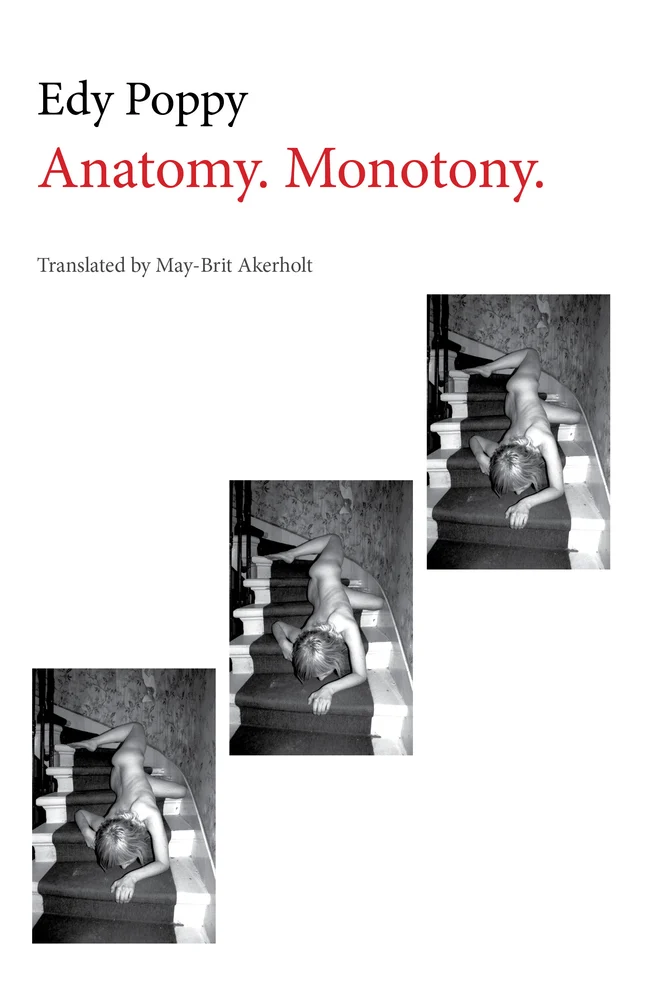Book by VALZHINA MORT
Reviewed by
 In the long prose poem “Aunt Anna” at the heart of Collected Body, the speaker muses, “so evasive is Aunt Anna’s body, it is impossible to hold a thought of it longer than an instant.” Throughout Valzhyna Mort’s first book of poems written in English, rather than translated by the poet and others from Belarusia as in earlier work, the reader finds that sense of commitment to recapture history, and thus the speaker’s own life.
In the long prose poem “Aunt Anna” at the heart of Collected Body, the speaker muses, “so evasive is Aunt Anna’s body, it is impossible to hold a thought of it longer than an instant.” Throughout Valzhyna Mort’s first book of poems written in English, rather than translated by the poet and others from Belarusia as in earlier work, the reader finds that sense of commitment to recapture history, and thus the speaker’s own life.
Often, the point of departure on a journey into the past is the physical body. Gardens of an ancestral village “shrink by perspective into a single bush, as if it were the pubes of a woman, lying flat on her back, naked.” When Aunt Anna later in life walks from Siberia back to a childhood village, the speaker states, “This time she walked there for no man, for no village girl’s dream of the neighboring village; this time she walked for the memory of that pubes, for what it concealed – the source that her mouth was hungry to embrace.” More than only a springboard, a sensuous physiology becomes also the destination and the vehicle that carries Mort, and with her the reader, along on that journey. This attentiveness to the sensual imagery is captivating, and reminds one of Lorca’s advice to all poets: to speak with five bodily senses. Few poets follow this advice these days, and so Mort’s sensual language is refreshing.
Which is not to say that Collected Body is a book that focuses on the body alone. As Mort travels across a landscape that stretches from her native country to Siberia in one direction, the Caribbean in the other, and across expanses of time, it quickly becomes clear that the book is an ambitious undertaking which, in only 60 pages, is able to give a voice to something larger than just the speaker’s own experience. This happens because the poet’s voice, grounded in powerful, often sensuous images, propels us forward and makes the journey mysterious. Thus, in “Love,” the speaker lies on a mattress at night and listens to her lover cleaning his teeth across the hallway:
The spit shooting down the sink –
she still counts as his body.
The noose of his saliva over her pussy –
she still counts as his body.
This poem is also about history, in the sense of what a lover’s body reveals about love, about a past: “A suitcase of the body slapped/with stickers of scars from every location.” In Mort’s poem, the journey is painful but vital to establish a sense of identity and of permanence.
In “Zhenya,” the collection’s other long prose poem, the speaker through recollection of a disabled university classmate connects with the memory of a former lover, and thus with herself. “Looking for Zhenya I find you,” the speaker muses, and then later states, “What is love if not a need for a beholder, a witness; if not the possibility to be immortalized in the story of another person?” She declares, “You are my plan for immortality,” and story provides the essential connection between the sensual and the timeless; without this relationship there is no story.
Elsewhere, anatomy and geography go hand in hand: “After the cemetery you took me to a blue house, its doors thrust wide open by a woman – her breasts like the Ural Mountains separating her face from her body.” The woman’s home is rich with the smell of motherhood, and later in the passage the speaker declares that motherhood in this Belarusian village is “Mothering a child into a country unfit for history, as if history were the kind of fruit which required a warmer climate, a richer soil, abler cultivation.”
History’s enemy is death, for it offers silence in place of story. In “Preface,” the first poem of Collected Body, Mort establishes that tension between the power and essential necessity of story, and death, which has its own wordless story to tell.
Death decides to wait to hear more,
So death mews: firstyour story, then – mine.
What Mort attempts to do in this book is to pull a story from the deathly silence of history, her words an Orphean lute to pluck history’s narrative back from the underworld. The challenge is formidable: “My dead keep quiet as if they had been buried facedown, and decompose with grace and decency.”
Ultimately, Mort reveals that the world itself is a body scarred by history. In “Island,” Mort begins with the familiar territory of a woman’s body stripped “down all the way to forgiveness,” and by the poem’s end a description of the body of the speaker’s male lover, from which springs an observation that the “Horizon blistered by the setting sun heals, leaving/a hardly visible scar.” As with that scarred horizon, the experience of Collected Body is challenging and breath-taking. By the end, the reader is rewarded with a rich exploration of unearthing the past through discovery of the most intimate landscapes of the self.
Patrick Meighan is a former newspaper reporter and theater critic who lives in New Hampshire. His poems have appeared in Red River Review, Illya’s Honey, Flash!Point, and other journals. He received an MFA in poetry at New England College.



